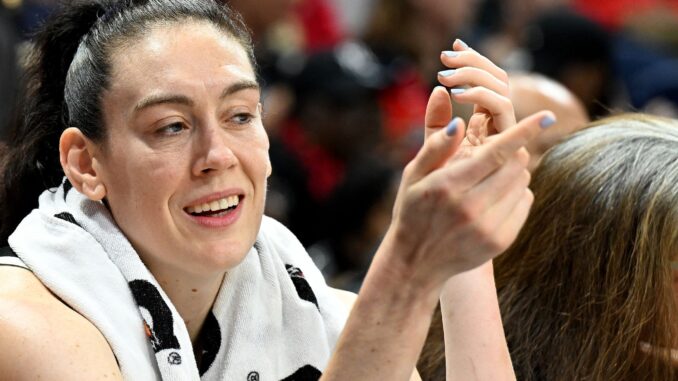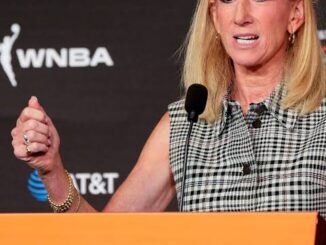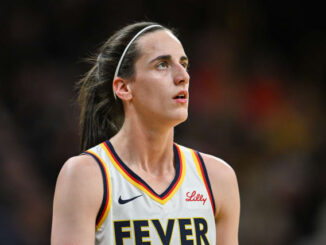
Breanna Stewart, WNBA Stars Stand Firm in CBA Negotiations: “We Won’t Settle for Less”
As the WNBA continues to experience unprecedented growth in popularity and visibility, league stars are making it clear: they won’t be sidelined in the boardroom.
New York Liberty forward and two-time WNBA MVP Breanna Stewart is among the leading voices pushing for a new, more equitable collective bargaining agreement (CBA) as the league and players union begin negotiations ahead of the 2026 season. The current CBA, signed in 2020, includes a player option to opt out after the 2025 season — an option the WNBA Players Association (WNBPA) is expected to exercise.
“We’ve come a long way, but we’re not settling,” Stewart told reporters earlier this week. “The growth is happening because of the players. We’re not asking for everything — we’re asking for what we’ve earned.”
Stewart’s remarks echo growing sentiment among top-tier WNBA athletes who believe the league’s financial structure, travel conditions, and revenue-sharing models remain behind the times, especially considering the recent surge in media attention, sponsorships, and attendance driven in part by rookies like Caitlin Clark and Angel Reese.
Since the 2020 CBA, the WNBA has improved in areas such as maternity leave, travel stipends, and marketing agreements. But according to Stewart and others, those changes are just the beginning.
“Charter flights shouldn’t be a luxury,” said Stewart, who has been outspoken on travel conditions. “With the revenue we’re seeing, there’s no excuse. Our health and safety need to be prioritized.”
Indeed, travel has become a flashpoint. While the league announced earlier this year that all postseason games and select regular-season matchups would feature charter flights, many players argue this doesn’t go far enough — particularly when long travel days cut into rest, preparation, and performance.
Revenue sharing is another critical issue. Unlike their NBA counterparts, WNBA players currently receive a much smaller percentage of league revenue. In the NBA, players are entitled to roughly 50% of basketball-related income. In contrast, WNBA players receive a share that can fluctuate and is often significantly lower.
WNBA Commissioner Cathy Engelbert has acknowledged the progress still needed. “We’re committed to continued investment and growing the pie,” she said in a statement. “This is a partnership, and our goal is to build a sustainable model for long-term success.”
But players are now less willing to wait. With social media amplifying their voices, and a global audience increasingly tuning in, many athletes believe this is a historic moment to demand systemic change.
“We love this game, and we’re fighting for the next generation too,” Stewart said. “We’ve built this league on excellence, and we’re not going backward.”
The WNBPA has not formally announced its decision on the opt-out, but multiple sources suggest the players are unified in seeking stronger terms. As negotiations intensify, one message from the players is clear: the era of accepting less is over.



Be the first to comment